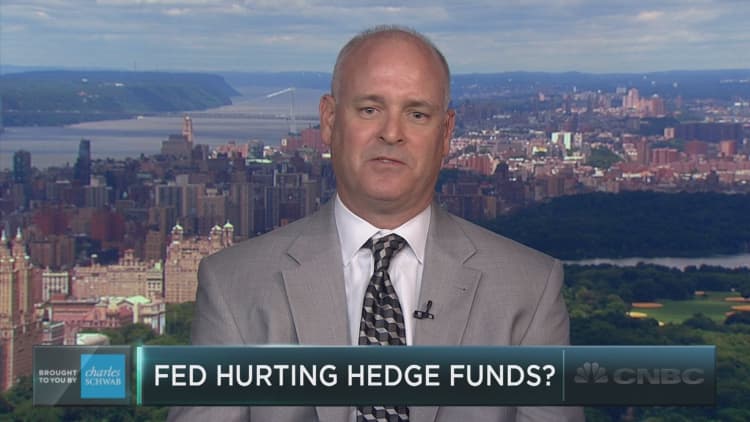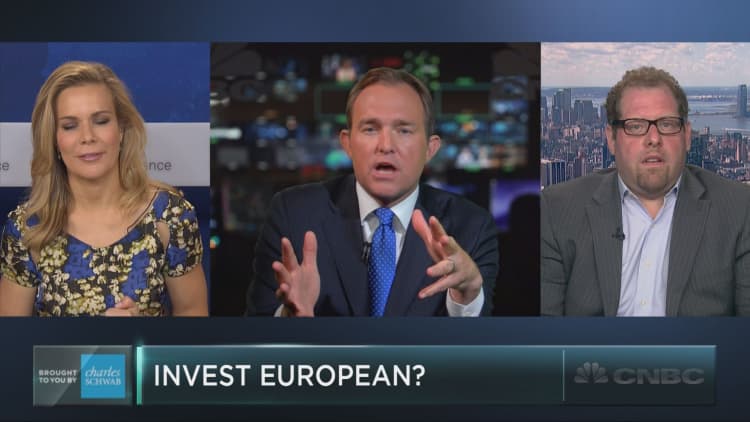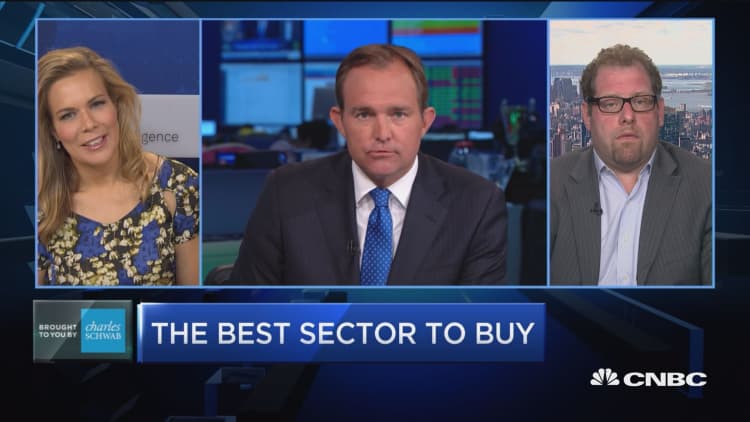


Hedge funds have been underperforming for a few years, and the Federal Reserve could be to blame.
Dynasty Financial CIO Scott Welch believes that some of the central bank's policies, coupled with investors' fears since 2008, have challenged the traditional hedge fund structure and limited many of the tools needed for these institutions to thrive.
"If you think of what drives hedge fund performance, you've got four basic things: You've got leverage, you've got illiquidity, volatility and then you have manager skill," he said on Tuesday's "Trading Nation." "You think about the events following 2008, and leverage and illiquidity became very unpopular with a lot of investors."
And according to Welch, quantitative easing from global central banks has removed volatility from the marketplace, and inadvertently robbed hedge funds of a key ingredient to their success.
"You have this environment where the tools that a talented hedge fund manager can use to try and drive performance just simply weren't available to them," Welch added.
Since the start of the Fed's first quantitative easing program in 2009, hedge funds have dramatically underperformed the broader S&P. As of May, the HFRI Fund Weighted Composite Index, which measures hedge fund performance, has gained less than 1 percent year to date. Over that time, the S&P 500 is up more than 3 percent.
The lack of performance has some investors pulling their money and questioning the high fees hedge funds chart. In a recent interview with CNBC, CalSTRS Chief Investment Officer Christopher Ailman said the traditional two-and-20 compensation structure was "dead" and that the hedge fund model was "broken." In the first three months of 2016, investors collectively withdrew $15 billion from hedge funds.
Still, Welch emphasizes that while investors could be questioning the fees they have to pay for an underperforming asset, hedge funds could actually see the light of day further down the road.
"The question is not necessarily if they're going to disappear, as to whether or not they're going to be able to maintain their fee structure," said Welch. "We're already beginning to see that in the U.S., at least trying to raise rates even if some of the other major central banks are not. Once you have that divergence of central bank policy, I think you'll start to see increased volatility in the market again."
In other words, skilled hedge fund managers could see the tools they need at their disposal once again.





